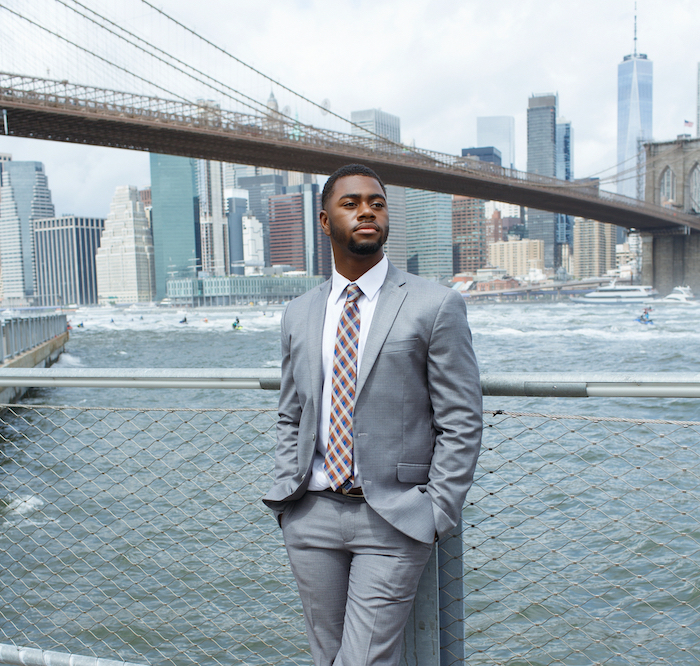I’d like to start this off with a story.
Several weeks ago, cold, exhausted, and ready to erase the day away, I strolled into my local watering hole. It’s a small, aged, dimly lit townie bar, so most of the time, I’m one of only a few patrons inside. I prefer it that way.
On the caddy-cornered TV that sat above the inventory, we watched the news in bewilderment as the war in the Middle East progressed. Not in favor of either side, I just watched with extreme discontent and sadness for the homes lost and families separated as the cameramen panned across the rubble. It’s not an ideal way to unwind, yet that’s not reality. We can’t hide from real life.
Sipping her watered-down vodka soda, me my Yuengling, the older woman next to me, and I began to talk. We must have talked for a while because, by the end of the night, it was just the two of us and the bartender.
We talked about the changes in this world she’s seen over her years. How much things are different now. She told me about her 8-going-on 28-year-old granddaughter who knows everything. The proverbial iPad kid, I presumed.
The conversation lightened and began to wind down as we talked. But out of nowhere, she flipped the script. She leaned back in her chair and said to me, “I can’t imagine how things will get better from here.”
She didn’t know what I do for work or that I would later write about this, so I probed further. I asked her, “so what now? Should we just give up all hope?”
In the midst of uncertainty, it’s easy to succumb to the weight of the world and feel as though hope is a distant memory. But as I sat in that dimly lit bar, sharing stories and thoughts with a stranger, I realized that hope is not only essential; it’s all we have.
I’ve said before that maybe it’s due to the acceptance/realization of our mortality; as we age, our view toward the future gets grimmer.
However, I once read that the secret to happiness lies in always having something to look forward to. Whether in our own lives—starting a family, moving to a bigger home, affording your dream car—or our loved ones’ lives—seeing little ones grow up and discover life for the first time, being a part of your brother’s wedding, or watching your parents retire to enjoy the life they worked so hard to see.
- Or on a bigger scale. Consider the strides in medical science, where tiny robots crafted from human cells hold the potential to repair damaged neural tissue. These “anthrobots” pave the way for personalized medicine, offering hope for those facing neurological challenges.
- And as expected, the realm of artificial intelligence continues to see groundbreaking developments. Even in my own life, I use ChatGPT and Grammarly AI to spot my errors, weaknesses, and propose better ways to say what I’m thinking.
- But that’s old news. Now, an AI model trained on a diverse range of inputs can distinguish between biological and nonbiological origins with impressive accuracy.
- Josh Brown wrote about Google’s Gemini AI technology, embracing multi-modality, marking a paradigm shift, promising a future where AI is not confined to text but seamlessly integrates text, images, audio, and video.
There is an incredible amount of discovery that’s happening right before our eyes, and despite any fears of laziness and complacency from the next generations, I can’t imagine that the progress stops here.
Things always get better—but so do our standards of living. Which may be why it’s so hard to see that things have, in fact, gotten better.
As I unravel these discoveries, it should be evident that we are on the cusp of transformative change. The trajectory of progress is undeniably upward, fueled by human ingenuity and a relentless pursuit of knowledge.
Thinking back to our conversation—of course, she said no. We can’t just give up.
Like her granddaughter, our kids, grandkids, and nieces/nephews have to grow up in this world, too.
They will have their own experiences. Good and bad. They will always have bruises and skinned knees, graduate from school, experience relationships and breakups—all the things we had to go through, too.
Maybe college, but they certainly will need to delve into the working world at some point. And they will be more equipped with tools we could never have dreamed of. But that doesn’t mean they will replace our basic need for a highly skilled workforce.
Things will always evolve and adapt. And those who don’t simply won’t survive.
Despite each evolution, there are aspects of life that will simply never change.
Morgan Housel said in the opening pages of his new book, Same As Ever:
“History is filled with surprises no one could have seen coming. But it’s also filled with so much timeless wisdom… You’d find people seeking the secret to a happy life and try to find certainty when none exists in ways that are entirely relatable.”
So, where am I going with this? The message should be clear: despite the challenges, the uncertainties, and the complexities of this world, hope is all we really have.
Our children will navigate their own journeys, equipped with unprecedented advancements of their time.
Life will evolve, but the essence of hope for a better life for the next generation will always remain.

